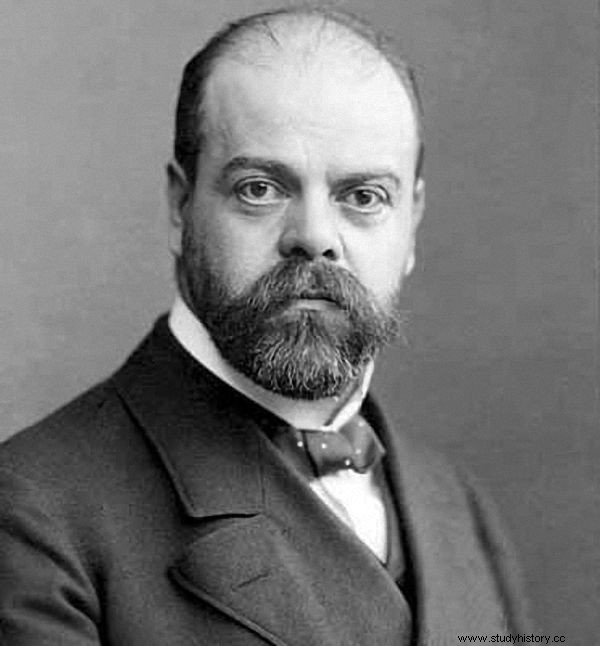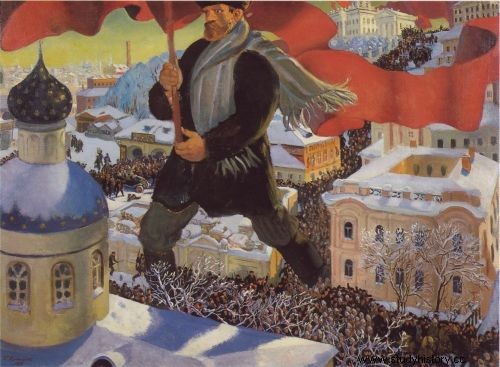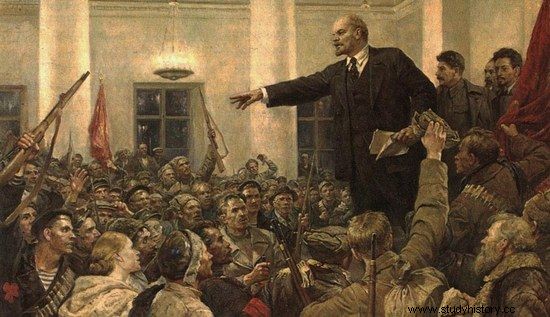For some he was just a Jewish schemer. For others, an academic lecturer with suspicious socialist connections. Many knew him as an influential Constantinople arms exporter. Still others thought he was just a fat capitalist ... or a German agent. Perhaps the most important for history was his role as a real architect of the October Revolution.
We are not talking about Vladimir Lenin, Leo Trotsky or any other idealist in the clouds. Aleksander Izrael Lazarevich Helphand (also known as Alexander Parvus, Izrael Gelfand or Izrael Helfant) may have been caught up in subversive ideas in his youth - spent in Odessa and then in exile in Basel - but in his middle age he was already down to earth.
Some argued that even then he remained a true socialist in his heart. Others were ready to believe that he simply wanted the fall of the Romanovs who were responsible for the hundreds of years of persecution of the Jews in Russia.
Anyway, a former poor man from Berezina in 1915 knocked on the door of the German Ministry of Foreign Affairs as an influential merchant from distant Constantinople, with the support of the German embassy there. He quickly reached people making real decisions and presented to them his plan:to destroy Russia from within.

Alexander Helphand. The fat capitalist behind the revolution?
Everyone has known for a long time that Russia is literally rotting, and the people who rule it are breaking records of incompetence. Helphand, who had had a hand in the revolution of 1905, knew something else - that it was enough to give the local people a stimulus to act and they would go against the Tsar, Rasputin and the government made up of losers.
A revolution for 50 million marks?
The subsequent events are relatively well known to history buffs. The German army and the Ministry of Foreign Affairs initially reluctantly and then with increasing enthusiasm engaged in an unofficial propaganda campaign in Russia, supporting the revolutionary idea in general and, at that time, the political plankton of the Bolsheviks in detail.

The October Revolution is knocking on the gates…
The books, however, rarely mention that Helphand was behind all these activities, at least indirectly. It was he who took money from the Germans, for which he financed Russian subversive movements, published the socialist press, and quite unsuccessfully tried to win over the communists.
It could not be said that he was particularly good at his job (it has not been long, and everyone has already thought of him as a German agent), but on the other hand, the revolutionaries were not demanding people. As Andrew Cook wrote:
As long as the money was flowing fast, the rebels were ready to believe any explanation he gave for the origin of the funds .
The initially skeptical Lenin, too, finally succumbed to persuasion and set off by the German train from Switzerland to Stockholm and then to Petrograd. Helphand's plan - picked up by the Germans - assumed the complete destabilization of Russia in the summer of 1917. It was for this reason that the Bolsheviks were transported to the capital of the declining empire at his instigation. In addition, 30 to 50 million marks were pumped into various propaganda and subversive actions.
Indirectly, Helphand has achieved success. The sprouting Russian democracy has collapsed with a bang. On the other hand, the plan assumed that Russia could be easily cut into pieces and subjugated to Germany. As you know, nothing like that happened and the Bolsheviks took power for over 70 years.

It is worth remembering that if it had not been for Helphand Vladimir Lenin, perhaps he would never have reached power.
It is hardly surprising that no trace of Helphand remains in their historiography. After all, the acceptance of German gold was not a particularly glorious episode of the revolution. Surprisingly, however, hardly anyone in the West remembers the role of Helphand. Yet if not for his determination, Lenin might still have been sitting in Zurich in 1918. Perhaps only the Germans remembered him warm enough to write books and articles devoted to him to this day…
Source:
- Andrew Cook, The Murder of the Romanovs , Amberley Publishing 2010 (Polish premiere is scheduled for 2011, in the translation of the above-signed one).
